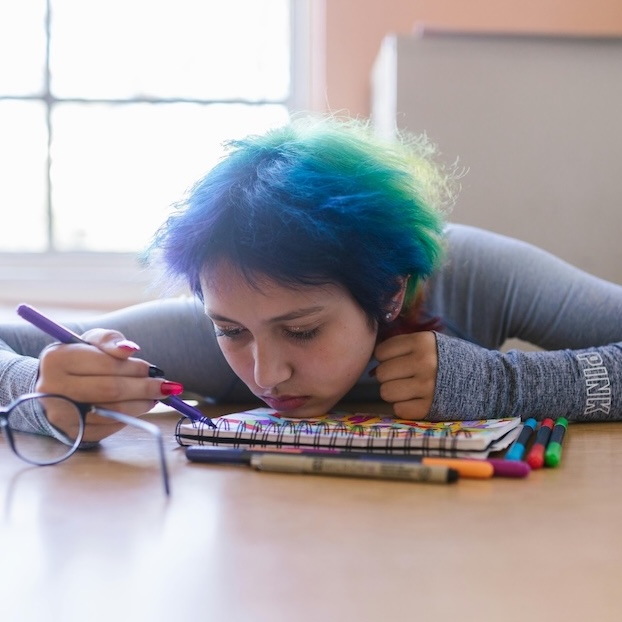More parents and educators are recognizing the importance of mental health support for children. But when the idea of therapy comes up, it’s natural to have questions—and even concerns. Will therapy help my child? Will they experience stigma? Is it really necessary?
If you’re wondering whether therapy is right for your child, you’re not alone. Here are seven common concerns about therapy many parents and guardians have—along with the facts that can help you make an informed decision.
1. Does my child really need therapy? Isn’t therapy only for people with serious mental health problems?
It’s true that children go through different emotional and developmental phases, but therapy isn’t just for extreme cases. If a child is struggling with anxiety, sadness, behavioral changes, or stress that affects their daily life—whether at school, home, or with friends—therapy can provide a safe space to work through their emotions. Early intervention can also prevent bigger challenges down the road, and prevent symptoms from worsening into extreme cases.
“I loved how caring, compassionate, and honest my daughter's therapist was. Her therapist provided strategies for making small yet powerful positive decisions. I am thankful to have had Hazel Health as an option to provide immediate care for my daughter. Hazel Health was a true blessing.” - Parent, Hazel Health partner school district
2. I don’t want my child to feel labeled, or “different” than their peers. Will people find out my child is in therapy?
One of the biggest shifts in recent years is the normalization of mental health care–a 2019 survey by the American Psychological Association found that 87% of American adults agreed that having a mental health disorder is nothing to be ashamed of, and 86% believed that people with mental health disorders can get better.
Just as we don’t hesitate to take kids to the doctor for a physical illness, seeking therapy is simply another way to support their well-being. Many schools now offer mental health resources, like Hazel Health, making therapy more accessible and common. What’s discussed in therapy between your child and their Hazel therapist is confidential, private, and not shared outside the virtual walls of the therapy session.
3. What if my child doesn’t want to talk in a virtual setting?
One of the biggest concerns about online therapy is whether children can form a strong relationship with a therapist without being in the same room. Surprisingly, many kids feel more at ease in virtual sessions. Today’s children are used to interacting through video and technology, and therapists are trained to engage kids in ways that feel natural—even through a screen.
4. Is online therapy as effective as in-person therapy?
Research shows that virtual therapy can be just as effective as in-person therapy for many mental health concerns, including anxiety, depression, and emotional regulation. What matters most is the quality of the therapist, the therapeutic relationship, and the strategies used.
"I never wanted to do it, [but I was] very surprised at how nice [the therapist] was. She is very nice and really easy to talk to. I was happy she is black. I feel like she can understand things that other people can’t." - Student, Hazel Health partner school district
5. Isn’t therapy expensive?
Cost is a common concern for families considering therapy, and depends on the provider delivering care. Hazel is $0 for families. Hazel partners with schools to cover the cost of services so that there’s no out-of-pocket costs for families. If you do have insurance, we’ll bill your insurance to cover the cost of your child’s visit, so there’s no cost to you.
6. Will I be involved in my child’s therapy if it’s online?
Parental involvement is crucial, and online therapy doesn’t change that. Many therapists include parents in the process, whether through pre- or post-session check-ins or providing strategies to reinforce at home. Virtual therapy can actually make it easier for parents to stay connected with their child’s progress without the need for extra travel. At Hazel Health, guardians are requested to participate in their child’s first appointment with the therapist. Additionally, guardians can communicate directly with their child’s therapist through the duration of the therapy program.
7. What if therapy goes on and on—and on?
Treatment length is dependent on a child’s unique needs, but 79% of students report feeling better after just 6 sessions with their Hazel therapist. Each student enrolled in the Hazel online therapy program can expect an intake visit plus six weeks to two months of weekly sessions before being discharged from the Hazel program. The program is short-term—if your child needs long-term mental health support, we will help identify and connect you with options in your community. Our providers may use their clinical discretion to provide care services beyond two months on a case-by-case basis if a student encounters challenges connecting to long-term care.
Online therapy has made mental health care more accessible, flexible, and convenient for families. While concerns about engagement, privacy, and effectiveness are understandable, virtual therapy offers real benefits—helping children learn coping skills, express their emotions, and build resilience from the comfort of home.
If you're considering online therapy for your child, the most important factor is finding a therapist who understands their needs and can create a supportive, engaging experience—whether in-person or online.
"My daughter loved her counselor a lot! She’d gone through a lot of changes in a short time and just being able to talk to someone was really good for her. She learned coping skills and was excited for her appointments with Hazel Health! It was good for my daughter to talk to someone other than a parent and be validated and supported.” - Parent, Colorado



.jpeg)

